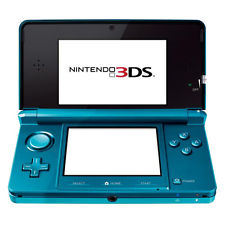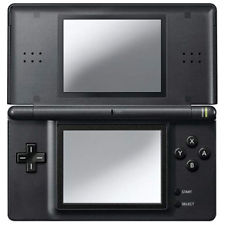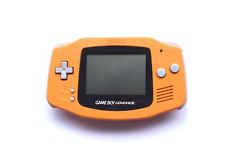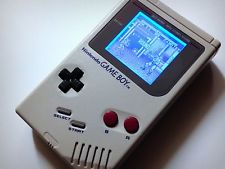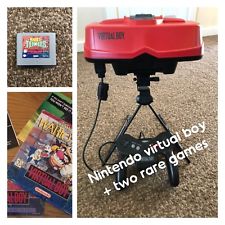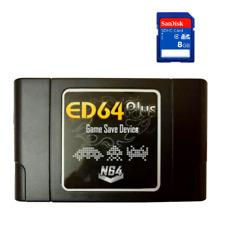|
March 26th, 2015, 23:53 Posted By: wraggster
On Tuesday March 17th, Nintendo president Satoru Iwata surprised a gathering of press with a major announcement about the future of its business.
“In recent years, with the spread of smart devices, we’ve increasingly heard a variety of opinions on the future of the dedicated video game system business, and in particular relatively pessimistic ones,” he said, adding that issues impacting the performance of 3DS and Wii U has sparked analysts “to suggest that dedicated game systems too may be consumed by smart devices since the latter has already been said to have consumed a variety of dedicated devices such as digital music players, cameras and car navigation systems.”
Iwata doesn’t agree with that analysis, to the point that he announced the NX – a dedicated console that will be revealed next year. But, he does view smart devices as the next generation of the TV and said: “It would be a waste not to use these devices.”
Nintendo said it would be developing mobile games. It is something some critics and analysts have longed lobbied the company to do. Yet the economics of mobile gaming is something that has never sat well with Nintendo.
Mobile games rarely cost more than a £1 – Nintendo would have to sell a lot of Super Mario iOS to generate significant money – which is why so many mobile developers have adopted the free-to-play (or ‘free-to-start’ as Iwata calls it) model. Perhaps Mario runs out of energy after a few levels, and gamers will either have to wait until he’s refreshed, or pay some money to buy him a power-up. Or perhaps fan will have to pay micro-transactions to access extra monsters in Pokémon.
It would work, but would it go down well with Nintendo’s die-hard fans? Or, more to the point, how well would it sit with parents, who are already wary of mobile gaming’s ‘free’ business model?
It’s something Iwata is clearly concerned about. In subsequent interviews, he has suggested that Nintendo may have to come up with entirely new business models.
And this is perhaps where Nintendo’s new friend can come into play. The Japanese smartphone giant: DeNA.
"Nintendo can help with our global expansion.
Its IP will bring the best gaming experience to
players around the world." Tomoyuki, Akiyama, DeNA Nintendo has partnered with DeNA to launch its smartphone games platform, and as part of the deal Nintendo has taken a ten per cent share in the firm, while DeNA has taken a 1.24 per cent share in Nintendo.
DeNA is one of the biggest mobile games companies in the world. It employs some 2,000 people and generated almost $1.8bn last year – primarily from mobile games. Meanwhile, almost $2bn was consumed by DeNA mobile games in 2013. It is on the Tokyo Stock Exchange and even owns a Japanese baseball team.
It wasn’t always a mobile games business, however. It began life in operating online actions, before moving into online retail, then mobile auctions, mobile advertising, mobile social networks and then finally entering the gaming space.
It launched a platform called Mobage – a bit like Xbox Live for mobile – which has over 30m users.
“DeNA shifted its business focus to mobile as early as in 2004 - three years before the iPhone - and built its expertise,” says global corporate communications chief Tomoyuki Akiyama.
Akiyama says there are three key strengths to DeNA, including its metrics-driven operation, the ability to “develop mobile-optimised service for small screens and ‘in-between time’ and technology that is able to handle massive data traffic.”
But it’s not all about technology and analytics. DeNA knows a thing or two about publishing and making games. It released Kaito Royale, a mobile hit in Japan, and it’s published Rage of Bahamut and Blood Brothers, which have topped the App Store and Google Play charts in the West.

DeNA also has ambitious goals of its own.
“We want to be the world’s No.1 mobile internet company,” says Akiyama. “Mid-term, we want to establish our position as a mobile gaming leader, and to launch multiple new non-gaming businesses for sustained growth.”
It’s the global element that is key to DeNA. The mobile market has become saturated in Japan, but the company’s attempts to launch globally have had mixed results. It has a Western presence, and has invested in developers, but not to much success. Although it’s learned some valuable lessons.
“We found out what does and doesn’t work for users in the West,” continues Akiyama. “The difference includes lower revenue per user, higher drop-out rate and the different competitive landscape.
He adds: “Nintendo can help with this global expansion.
“Its IP will help bring the best gaming experience to over a billion mobile users globally. We will also continue to share knowledge between our offices around the world.”
It’s not the only thing Nintendo can help with. DeNA admits there are challenges in the mobile space, including intensifying competition, worsening discoverability for apps and increased user-acquisition cost – all of which, Akiyama says is something Nintendo can help solve, because it has the games and the software to help DeNA rise above its competitors and get the visibility it wants worldwide.
"We want to be the world's No.1 mobile internet company." Tomoyuki Akiyama, DeNA Of course this all sounds great for DeNA. But what about Nintendo?
Listening to Akiyma, DeNA sounds nothing like Nintendo. This is a company that talks about metrics, user acquisition and technology. These are not the sort of buzz words typically mouthed by Nintendo executives, who prefer to use words like ‘creativity’ and ‘fun’. Nintendo is run by creators; it’s why it often makes brilliant games, but not always astute business decisions.
Yet it’s because DeNA sounds like the antithesis of Nintendo that this partnership could work. Iwata says that: “DeNA’s strength is its world-class internet service construction and operating know-how.” And says that the two will work together “to construct a bridge between mobile and dedicated game hardware.”
DeNA can build something that Nintendo has repeatedly struggled to do: an online network that keeps gamers engaged with both the company and its games. Nintendo may not make billions from Mario Kart on Android, but if it can convince a fraction of those gamers to go and buy Mario Kart 7 on 3DS or Mario Kart 8 on Wii U, it could prove to be a lucrative initiative.
The potential of smartphones is huge for Nintendo – especially as many of these mobile gamers arethe ones that bought into Wii and DS just a few short years ago. But the real exciting element of this move might actually be DeNA, and the role it can play in finding Nintendo a place in the modern games industry.
http://www.mcvuk.com/news/read/who-i...r-dena/0147216
For more information and downloads, click here!
 There are 0 comments - Join In and Discuss Here There are 0 comments - Join In and Discuss Here
|
|
 NES
NES






